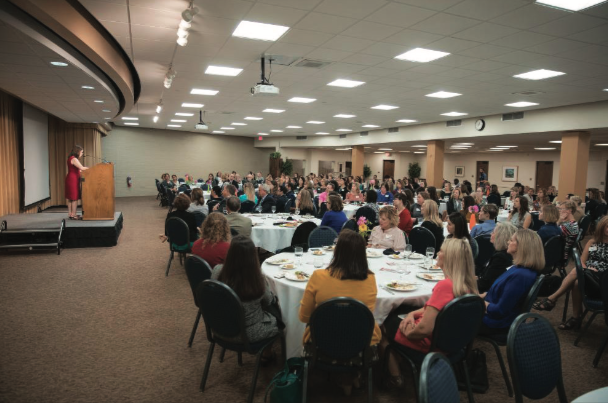Campus community joins US in celebrating Women’s History Month
Mar 18, 2019
March is Women’s History Month — 31 days to celebrate women of the past and present who have reformed societies and continuously strive for equality. The National Women’s History Alliance has declared the 2019 theme “Visionary Women: Champions of Peace and Nonviolence.”
This month celebrates the champions who have carved new paths in history, such as Rosa Parks, Angela Davis, Sally Ride and Mother Theresa — while also giving due recognition to the diligent efforts of today’s women in leadership, like Malala Yousafzai, Roxane Gay, Alexandria Ocasio-Cortez and Tarana Burke.
Women are working to increase the number of female voters in Pakistan. Phyllis Omido is fighting to save the Owino Uhuru village from lead poisoning. Adriana Cómbita strives for peace at a prison in Barranquilla, Columbia. Saudi Arabian women are moving toward the right to drive. Malala Yousafzai advocates for education.
The National Women’s History Alliance will be honoring women from the past and present, such as founder and successor of the National Association for the Advancement of Colored People (NAACP) Mary Burnett Talbert and founder of Women for Women International Zainab Salbi.
Celebrations of Women’s History Month have certainly spread since its genesis 1978, established by the Education Task Force of the Sonoma County (California) Commission on the Status of Women in an effort to introduce their history to schools and the public. They positioned the week-long celebration to fall on International Women’s Day and the response was a success.
Several schools joined, inviting women of the community into their classrooms to give presentations and accepting entries for a “real women” essay contest. By February 1980, the week gained publicity thanks to President Jimmy Carter’s presidential proclamation to name it National Women’s History Week.
Fourteen states had deemed March Women’s History Month by 1986. A year later, Congress announced March would be to honor women.
March is the month to celebrate the struggles and successes of women around the world, including here at home. The Grand Valley State University Center for Women and Gender Equity is hosting several events throughout the duration of the month to recognize the achievements of women all around the world and here in the Laker community.
“The contributions of women to history are certainly important, but perhaps equally important are that thinking of ‘women’ as one category of person with one type of lived experience is to truly miss out of the depth of understanding how a woman of color, trans woman or student who is parenting a minor child experiences life and is contributing to our understanding of gender justice,” said Director of the Center for Women and Gender Equity Jessica Jennrich.
The Center for Women and Gender Equity is celebrating Women’s History Month by providing a variety of events to inform students about topics of feminism, gender, relationships and more.
“The events are to educate and engage the campus community about both the history of women’s contributions to important social justice movements as well as, and perhaps more pertinent in recent years, emphasize the important work women from diverse intersectional identities are engaging in currently to shape our campus, community and world.” Jennrich said
Aside from the activities offered for Women’s History Month, the Center for Women and Gender Equity holds various events and seminars throughout the year, continuously providing students with opportunities to gain more insight.
“Talk Back Tuesdays” occur monthly at the Center for Women and Gender Equity and allows attendees to discuss current issues in local and global communities. “Feminist Film Fridays” is a chance to watch and discuss films about gender justice. Additionally, “EqualiTEA” is held once a year, and starts conversation about literature, politics, and reform.
Jennrich said the Women’s History Month panel is beneficial for those who may be new to concepts of gender equity and justice and are looking for an introductory event. The Ntozage Shange reading event honored the influential African American playwright who emphasized the intersectionality of race and gender in feminist issues.
Both on campus and off, Women’s History Month is honoring the women who have begun a movement in our past, and are leading the way in the present toward female freedom for future generations.
























